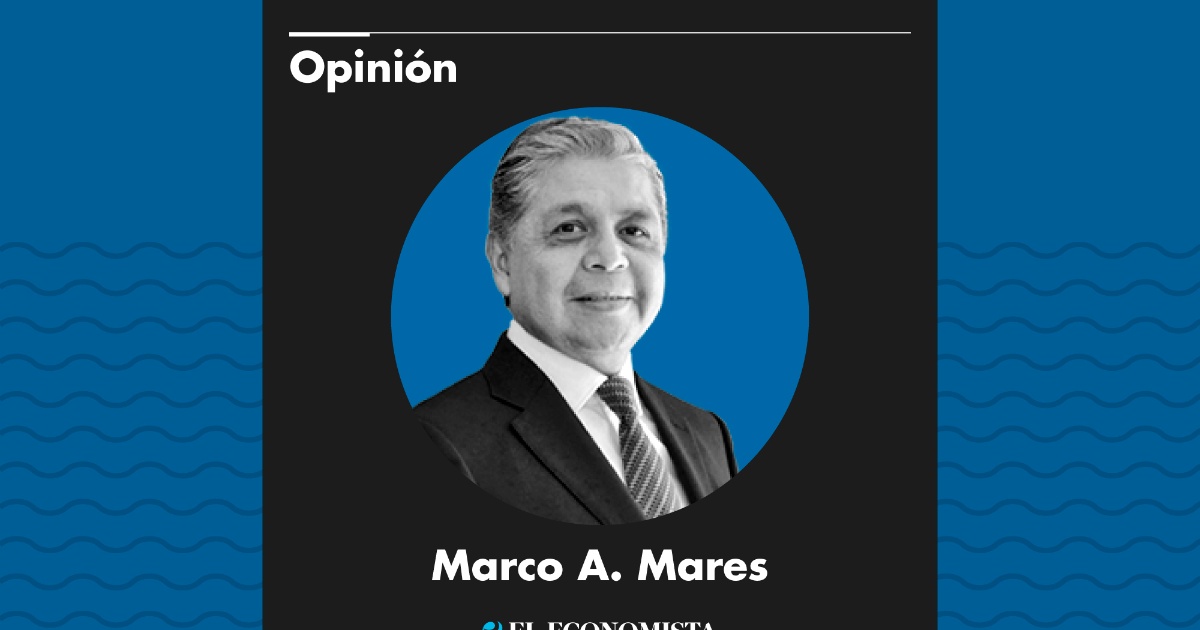The Mexican government is at a crossroads.
This is a matter where you will have to argue and convince your counterparts.
But above all, it is an issue that will have to be discussed and defined within the Mexican government itself. What path should Mexico take in the face of its interlocutors?
It will have to define if it maintains, against the grain, the energy policy that the radical wing of the government upholds.
Or if he softens his position and agrees to respect what he promised when signing the renewal and reconversion of NAFTA to T-MEC.
Represented by a Chief Executive whose desire is to abolish the neoliberal regime that preceded it, the Mexican government has reached an appointment in which it will have to resolve whether or not it complies with an agreement that it approved and signed with its main trading partners: the United States and Canada.
The T-MEC, it must be remembered, was approved by the Senate of the Republic, with the Morena party. And it was signed by the current President of the Republic.
There are two central pieces on the board of the trilateral pact, which without being directly linked, depending on how they move, could have an effect of one on the other.
In the first, it is about the discussion around the interpretation of the rules of origin of the T-MEC, in which Mexico and Canada claim the US.
In this channel, the issue is already in the dispute resolution phase and the panel of arbitrators will have to issue its final resolution on November 10. It will then be known if the position of Mexico and Canada wins, or if not, the US interpretation prevails.
And it will be seen, in case the US loses, if its government complies with the resolution of the arbitrators or does not comply and the governments of Mexico and Canada have to impose tariff quotas.
And on the other hand, it is in the extended term, the dialogue prior to the contentious phase, of the disagreement of the US and Canada, for the energy policy of Mexico.
Those countries accuse the Mexican government of discriminatory treatment against companies from those nations.
In recent days, the replacement of the Secretary of Economy, Tatiana Clouthier, was registered.
And even more worrying, it was observed that they forced Luz María de la Mora, the main negotiator and most experienced technician in the T-MEC, to resign. Additionally, the new Secretary of the Economy, Raquel Buenrostro, requested the resignation of other officials, including the Undersecretary of Industry, Héctor Guerrero.
We also saw the appointment of Alejandro Encinas Nájera – son of the current Undersecretary for Human Rights, Alejandro Encinas Rodríguez – as the new Undersecretary for Foreign Trade.
Encinas Nájera has no experience in Foreign Trade, except for having been a contact in compliance with the rapid response labor mechanism.
For Luis De la Calle, a former NAFTA negotiator, this is a major change.
After the Mexican government invested during the last 35 years, in human capital to have first line commercial experts, with a great international reputation, we are seeing the end of that stage.
The changes made by Buenrostro would seem to indicate that they will opt for the path of political rather than technical negotiation.
We will have to see how they do it and if they succeed because at the time the US and Canada decide, they will be able to convene the contentious phase of the dispute and it will be the decision of a panel of expert arbitrators who determine who is assisted by the dispute. reason.
President López Obrador declared last Friday that the US gave up going to a panel on energy matters.
However, according to the version of the newspaper Reforma, this would have been denied by a source from the Commercial Representation (USTR) of that country.
Buenrostro has the most difficult challenge in his career. He has to negotiate with the US and Canadian governments, but above all he has to convince the interior of the Mexican government. He has to solve the crossroads of the Mexican government.
Her performance has been effective and she cannot be considered a dogmatic official. Despite the changes she made and the guidance they reveal, she can still be given the benefit of the doubt. We will see.
glimpses
Fibra Educa, headed by engineer Jorge Nacer, is the first broadcaster in the education sector in Mexico and in the world to be public and one of the 9 in the country to be rated as sustainable on ESG issues.
marcomaresg@gmail.com
hartford car insurance shop car insurance best car insurance quotes best online car insurance get auto insurance quotes auto insurance quotes most affordable car insurance car insurance providers car insurance best deals best insurance quotes get car insurance online best comprehensive car insurance best cheap auto insurance auto policy switching car insurance car insurance quotes auto insurance best affordable car insurance online auto insurance quotes az auto insurance commercial auto insurance instant car insurance buy car insurance online best auto insurance companies best car insurance policy best auto insurance vehicle insurance quotes aaa insurance quote auto and home insurance quotes car insurance search best and cheapest car insurance best price car insurance best vehicle insurance aaa car insurance quote find cheap car insurance new car insurance quote auto insurance companies get car insurance quotes best cheap car insurance car insurance policy online new car insurance policy get car insurance car insurance company best cheap insurance car insurance online quote car insurance finder comprehensive insurance quote car insurance quotes near me get insurance






